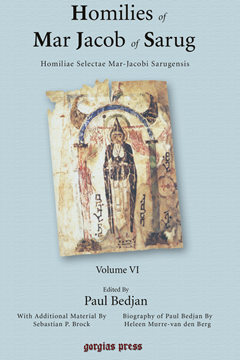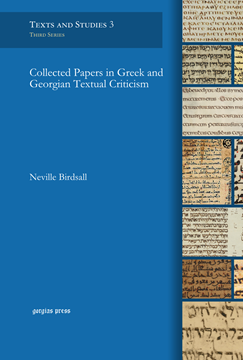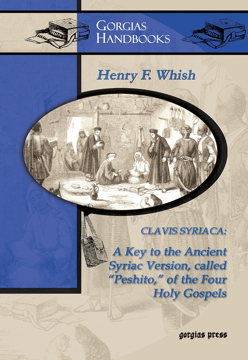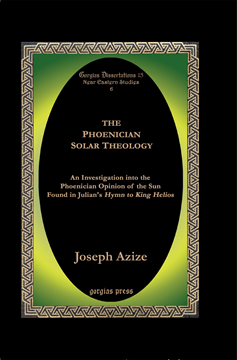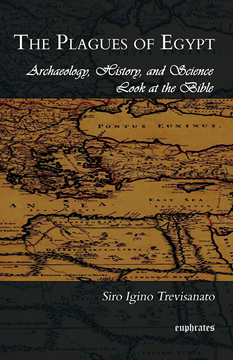Homilies of Mar Jacob of Sarug / Homiliae Selectae Mar-Jacobi Sarugensis (6 of 6 volumes)
Edited by Paul Bedjan and Sebastian P. Brock
ISBN: 1-59333-333-1
Jacob of Sarug is one of the most celebrated poets of Eastern Christianity and the Syriac tradition. The Gorgias Press edition, edited by Sebastian P. Brock, contains over 100,000 lines of poetry based on Bedjan’s 1905 edition.
$125.00 (USD) $75.00 (USD)
Collected Papers in Greek and Georgian Textual Criticism
Series: Texts and Studies (Third Series) 3
ISBN: 978-1-59333-098-9
This volume collects together for the first time the most influential papers of the late scholar of Georgian and New Testament textual critic, J. Neville Birdsall. Professor Birdsall wrote on Greek witnesses to the New Testament text, the Georgian version of the New Testament, palaeography, patristics, and the theory of textual criticism. The collection fully demonstrates the author’s standing as one of the most learned and wide-ranging New Testament textual scholars of modern times.
$159.00 (USD) $95.40 (USD)
Clavis Syriaca
A Key to the Ancient Syriac Version Called “Peshitto” of the Four Holy Gospels (Study Edition)
By H. Whish
Series: Gorgias Handbooks 3
ISBN: 1-59333-178-9
Clavis Syriaca furnishes a complete analysis of the text of the Gospels of the Peshitta New Testament and is an excellent study tool for students who wish to study it. The Clavis begins with the Gospel of St. John, as its language is the simplest, and ends with that of St. Luke. It is an indispensable tool for any student of the New Testament or the Syriac language. Words are analyzed according to text placement, translation, grammar, and Greek, Hebrew and Aramaic cognates. This is a very useful Victorian book for any student of Syriac.
$124.00 (USD) $74.40 (USD)
The Phoenician Solar Theology (Hardcover)
An Investigation into the Phoenician Opinion of the Sun found in Julian's Hymn to King Helios
By Joseph Azize
Series: Gorgias Near Eastern Studies 15
ISBN: 1-59333-210-6
This book, the first study of its kind, contends that an authentic Phoenician solar theology existed, reaching back to at least the fifth or sixth century BCE. Through Azize’s examination, a portrait of a vibrant Phoenician tradition of spiritual thought emerges: a native tradition not dependent upon Hellenic thought, but related to other Semitic cultures of the ancient Near East, and, of course, to Egypt. In light of this analysis, it can be seen that Phoenician religion possessed a unique organizing power in which the sun, the sun god, life, death, and humanity, were linked in a profound system.
$169.00 (USD) $101.40 (USD)
The Plagues of Egypt
Archaeology, History and Science Look at the Bible
ISBN: 1-59333-234-3
Molecular biologist Siro Trevisanato assembles data gleaned from a variety of ancient texts and a wide range of scientific disciplines to assist in a reconsideration of the ten plagues recorded in the Biblical book of Exodus.
$81.00 (USD) $48.60 (USD)
Memoirs of Halide Edib
Series: Cultures in Dialogue: First Series 4
ISBN: 1-59333-305-6
A prominent novelist, social activist, journalist, and nationalist, Halide Edib Adivar (1882-1964) was one of Turkey's leading feminists in the Young Turk and early Republican period. Memoirs is the first book in her two volume English-language autobiography, published in 1926, while she and her second husband Dr. Adnan were in exile in London and Paris having fallen out of favor with Mustafa Kemal's one-party regime. Edib describes her childhood, her confrontation with her first husband's polygyny, her divorce, and her entry into political and literary writing. Edib's account of her private life provides a unique example of a woman's individual and personal struggle for emancipation and gender equality.
$165.00 (USD) $99.00 (USD)
